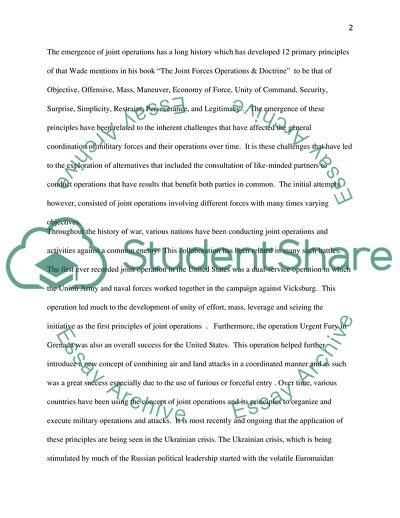Cite this document
(Use of Joint Operations Principles by Russia in the Ukrainian Crisis Research Paper Example | Topics and Well Written Essays - 4750 words, n.d.)
Use of Joint Operations Principles by Russia in the Ukrainian Crisis Research Paper Example | Topics and Well Written Essays - 4750 words. https://studentshare.org/military/1841145-utilization-of-joint-operations-principles-by-russia-in-the-ukrainian-crisis
Use of Joint Operations Principles by Russia in the Ukrainian Crisis Research Paper Example | Topics and Well Written Essays - 4750 words. https://studentshare.org/military/1841145-utilization-of-joint-operations-principles-by-russia-in-the-ukrainian-crisis
(Use of Joint Operations Principles by Russia in the Ukrainian Crisis Research Paper Example | Topics and Well Written Essays - 4750 Words)
Use of Joint Operations Principles by Russia in the Ukrainian Crisis Research Paper Example | Topics and Well Written Essays - 4750 Words. https://studentshare.org/military/1841145-utilization-of-joint-operations-principles-by-russia-in-the-ukrainian-crisis.
Use of Joint Operations Principles by Russia in the Ukrainian Crisis Research Paper Example | Topics and Well Written Essays - 4750 Words. https://studentshare.org/military/1841145-utilization-of-joint-operations-principles-by-russia-in-the-ukrainian-crisis.
“Use of Joint Operations Principles by Russia in the Ukrainian Crisis Research Paper Example | Topics and Well Written Essays - 4750 Words”. https://studentshare.org/military/1841145-utilization-of-joint-operations-principles-by-russia-in-the-ukrainian-crisis.


